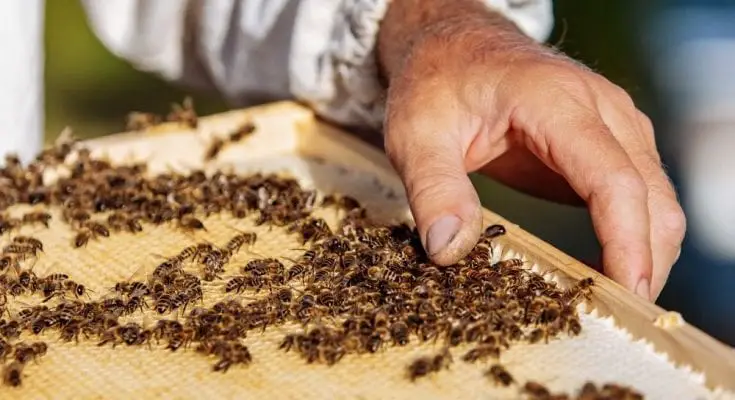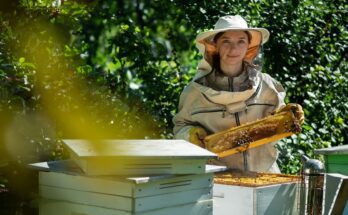With the bee population in decline, a beekeeper’s job has become even more important. Beekeepers protect these vital pollinators by helping their populations grow with necessary assistance. In addition, they tend to the hive and collect honey as well as flower pollen, bee pollen, propolis, and royal jelly. In an apiary, one of the most crucial parts of a beekeeper’s job is raising the bees. Learn how beekeepers raise honeybees by reading below.
Creating a Beneficial Environment
Raising bees starts with creating the right environment. Remember that bees are constantly at work, so you have to think of the hive as the honeybees’ workplace. They need it to be in a quiet area, protected from the wind, and it must get enough sunlight but not too much heat. The hive should face south. It should be kept above the ground, too. Bees need plenty of fresh water to survive, so set up a fountain or tray of water near their hive. With these preparations in place, your space will be ready for bee installation come springtime.
Feeding the Bees
When preparing to feed bees, it helps to understand how honeybees make honey. Worker bees collect nectar from flowers, which they store in their stomachs. This is the beginning of the honey-making process. They love the sweet taste of nectar, so you’ll want to feed them something similar in taste. Simply fill jars with sugar water, then put feeder lids on top. The bees should feed for about two to three weeks before they become used to their setting. After that, they will most likely start feeding on flowers.
Taking Care of Hives
Tending the hive is another significant part of how beekeepers raise honeybees. Keep the hive clean by making sure it’s free of bee droppings and litter. Check on the queen bee consistently. There should be larvae around her in various stages. Be sure that each stage looks healthy. Another crucial part of taking care of the hive is eradicating any pests. Some pests (such as varroa mites) are so dangerous that they can kill an entire colony of bees. Ants and hive beetles are also common hive infestations that you’ll want to forestall.
Additional Resources:
Wolf Spiders
Pelicans
Dolphins
Jaguars



